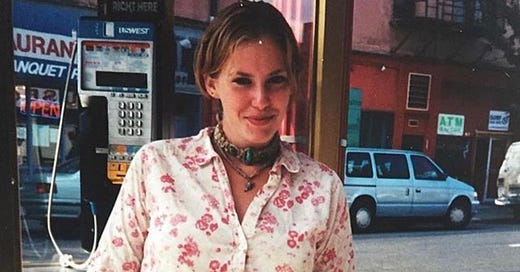Dear Gatherers,
In July 1997 I was homeless. My parents house wasn't too far away but I didn't want to be there. They were drunk. My stepdad made fun of me. My mom would sometimes get me on the floor. She’d straddle my torso, her face twitching and animalistic, and put her hands flat on the floor, right next to my neck. Her animal face hovered above mine as she screamed at me. My stepdad often stood off to the side where I could see him, watching. It was something they had done since they had married when I was 13. To get together and support each other in making sure I was good. Manageable. Appreciative of everything they gave me out of the goodness of their hearts. My mom and stepdad made me feel so small so that I would be who they wanted me to be but they didn't know who they wanted me to be and I didn't know who I was. The most important thing was that I listened to what they told me to do. That was something I wasn’t good at.
I spent that July lounging on the dry grass at Sylvest…
Keep reading with a 7-day free trial
Subscribe to Gathering to keep reading this post and get 7 days of free access to the full post archives.



